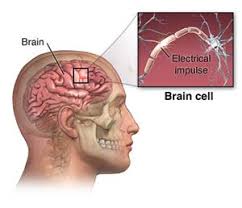Understanding Huntington’s Disease: Symptoms and Advances

Introduction to Huntington’s Disease
Huntington’s disease (HD) is a hereditary neurological disorder that leads to the progressive breakdown of nerve cells in the brain. Affecting both cognitive functions and physical abilities, HD is caused by a mutation in the HTT gene. This condition is particularly significant as it highlights the intersection of genetics, neuroscience, and healthcare, impacting not only patients but also their families and communities.
Symptoms and Progression
The symptoms of Huntington’s disease typically manifest in middle adulthood, usually between the ages of 30 and 50. Initial symptoms may include subtle changes in coordination or difficulty with everyday tasks, which can eventually progress to severe motor, cognitive, and psychiatric symptoms. The most well-known symptoms include:
- Involuntary jerking or movements
- Difficulty with focus and decision-making
- Obsessive or compulsive behaviours
- Emotional disturbances, including depression and anxiety
As the disease progresses, individuals may experience a decline in physical and mental capabilities, leading to a significant reduction in quality of life.
Current Research and Developments
Recent advancements in gene therapy and therapeutic strategies are offering hope to individuals affected by Huntington’s disease. Researchers are exploring techniques such as CRISPR gene editing to potentially correct the genetic mutation responsible for HD. Clinical trials are also being conducted to assess the efficacy of drugs that target specific symptoms and disease progression. According to a 2023 study published in the journal Nature Reviews Neuroscience, innovative approaches may slow down or even halt the disease’s progression, which presents a promising avenue for future treatments.
Support and Resources
In light of the challenges posed by Huntington’s disease, various support groups and resources are available. Organizations such as the Huntington’s Disease Association and the Huntington’s Disease Society of America provide essential information, advocacy, and community support for affected individuals and their families. These resources are crucial for navigating the complexities of the disease and ensuring that families receive the necessary care and support.
Conclusion
Huntington’s disease remains a serious health concern with profound implications for patients and their families. The ongoing research and increasing awareness can lead to better management strategies and, eventually, effective treatments. As we look to the future, the hope is that progress in scientific research will illuminate a path towards enhancing the lives of those affected by Huntington’s disease.









